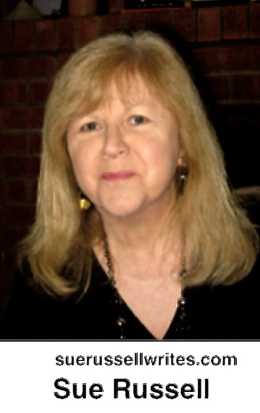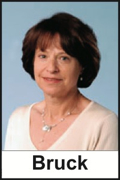Rascals case in brief
In the beginning, in 1989, more than 90 children at the Little Rascals Day Care Center in Edenton, North Carolina, accused a total of 20 adults with 429 instances of sexual abuse over a three-year period. It may have all begun with one parent’s complaint about punishment given her child.
Among the alleged perpetrators: the sheriff and mayor. But prosecutors would charge only Robin Byrum, Darlene Harris, Elizabeth “Betsy” Kelly, Robert “Bob” Kelly, Willard Scott Privott, Shelley Stone and Dawn Wilson – the Edenton 7.
Along with sodomy and beatings, allegations included a baby killed with a handgun, a child being hung upside down from a tree and being set on fire and countless other fantastic incidents involving spaceships, hot air balloons, pirate ships and trained sharks.
By the time prosecutors dropped the last charges in 1997, Little Rascals had become North Carolina’s longest and most costly criminal trial. Prosecutors kept defendants jailed in hopes at least one would turn against their supposed co-conspirators. Remarkably, none did. Another shameful record: Five defendants had to wait longer to face their accusers in court than anyone else in North Carolina history.
Between 1991 and 1997, Ofra Bikel produced three extraordinary episodes on the Little Rascals case for the PBS series “Frontline.” Although “Innocence Lost” did not deter prosecutors, it exposed their tactics and fostered nationwide skepticism and dismay.
With each passing year, the absurdity of the Little Rascals charges has become more obvious. But no admission of error has ever come from prosecutors, police, interviewers or parents. This site is devoted to the issues raised by this case.
On Facebook
Click for earlier Facebook posts archived on this site
Click to go to
Today’s random selection from the Little Rascals Day Care archives….
Click for earlier Facebook posts archived on this site
Click to go to
Today’s random selection from the Little Rascals Day Care archives….
UNC experts failed to bring rationality to case
March 4, 2013
“What did Mark Everson, Dr. (Jean C.) Smith, Dr. (Desmond K.) Runyan, Dr. (Doren D.) Fredrickson… all say about behaviors of children who are sexually abused?”
– From Nancy Lamb’s closing argument in the trial of Bob Kelly (March 23, 1992)
Although Lamb was understandably pleased with her parade of expert witnesses, their testimony brought only discredit to themselves, to their professions and to the University of North Carolina at Chapel Hill, especially its School of Medicine.
The prosecution called on psychologist Mark “Where there’s smoke….” Everson to explain away the child-witnesses’ wild inconsistencies and on pediatricians Smith, Runyan and Fredrickson to serve as “educators of the jury” about the case’s dubious physical evidence. (As detailed in this article in the Journal of Child Sexual Abuse, the pediatricians overreached but at least testified with less enthusiasm and more caution than Everson.)
One Chapel Hill faculty member, however, wasn’t fooled by the funhouse mirrors. I’ll be writing about sociologist Anthony Oberschall in Wednesday’s post.
Are mistaken prosecutors silenced by shame?
 Jan. 31, 2015
Jan. 31, 2015
“ ‘You need to try to rectify whatever error you made,’ says Santa Clara County, California, Special Assistant District Attorney David Angel. ‘But it needs to really shift from this kind of highly moralistic, punitive view. Maybe it’s a cause for embarrassment, but it’s not a cause for shame.’
“He believes prosecutors have drawn the short straw in language, noting that defense attorneys who err are called ‘ineffective’ and judges are ‘reversed,’ while prosecutorial error alone is labeled ‘misconduct,’ with all the attendant negative connotations.
“Angel believes that most prosecutors are willing to admit to mistakes but that ‘people are very hesitant to admit to something that’s called “misconduct,” because it makes you feel like you did something morally wrong.’ ”
– From “Why can’t law enforcement admit their mistakes?” by Sue Russell at Pacific Standard (via Salon, Oct. 21, 2012)
The concept becomes trickier, however, the longer prosecutors cling to their fallacious and costly narratives. At some point – oh, let’s say 25 years later – might “mistakes” have toxified into “misconduct”?
Parents saw nothing amiss until rumors took hold
 April 18, 2012
April 18, 2012
“One of the more surprising aspects of this (Little Rascals) case…. was that none of the parents… had observed anything that caused them to suspect their children were being abused or tortured during the period of the alleged abuses; there were no reports of unusual incidents from their children.
“Nor did the parents detect anything unusual when, without notice, they dropped in early to pick up their children from the day care (e.g., to take them to a doctor’s appointment).
“It was only after allegations began to grow that parents also began to remember events or behaviors consistent with their child being abused.”
– From “Jeopardy in the Courtroom: A Scientific Analysis of Children’s
Testimony” by Stephen J. Ceci and Maggie Bruck (1995)
Prosecutor Nancy Lamb gave the Charlotte Observer her response to “Jeopardy in the Courtroom”: “It’s unfortunate that these two people who have a good reputation – or at least Ceci did – have written this. It’s garbage.”
What caused ‘inability to think straight’?
Aug. 29, 2012
“Los Angeles County’s Satanic Abuse Task Force, an official sub body of the Los Angeles County Women’s Commission, concluded (in 1992) that Satanists were trying to pump diazinon poison into their office and home air vents in order to silence them. Task force members became suspicious, according to president Myra Rydell, after experiencing bouts of profound exhaustion, headaches and, perhaps most significantly, ‘the inability to think straight.’
“McMartin parent Jackie McGauley, also a task force member, told a reporter that, according to her doctor, diazinon would be ‘virtually impossible to detect’ if given in small doses over a long time period. The County’s epidemic specialist said that diazinon was easy to detect and after his own investigation called the claims ‘outrageous.’”
– From “The Dark Truth About the ‘Dark Tunnels of McMartin’” by John Earl (IPT Journal, 1995)
No single reason accounts for the country’s belated skepticism about ritual abuse, but the poison-gas episode in Los Angeles surely qualified as a “jump the shark” moment.











0 CommentsComment on Facebook